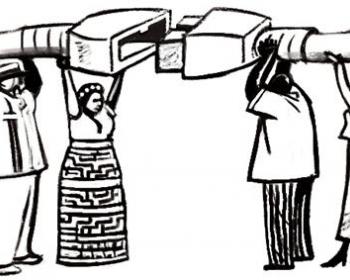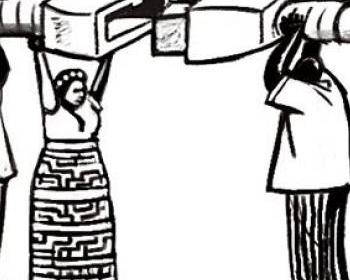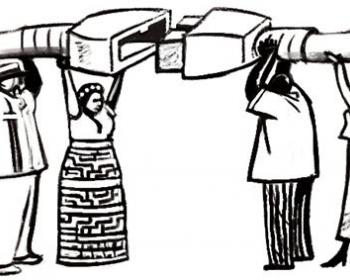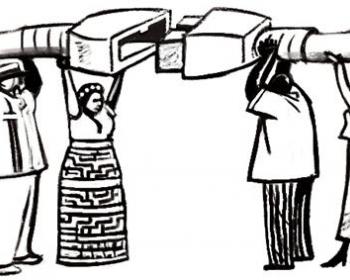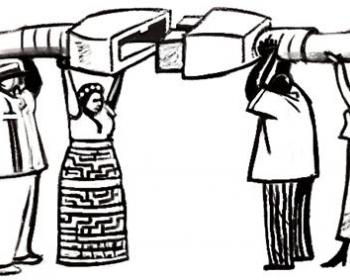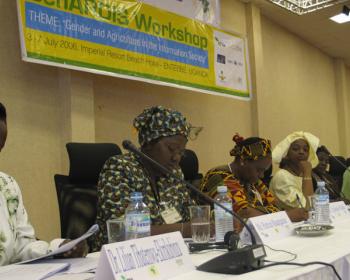Humanist Institute for Cooperation with Developing Countries (Hivos)
A fair, free and sustainable world – that is what Hivos, the Humanist Institute for Development Cooperation, wants to contribute to. Together with local organisations in developing countries, Hivos strives for a world in which all citizens – both men and women – have equal access to resources and opportunities for development. Hivos headquarters are in The Hague.
Hivos first provided support to APC’s Africa Women’s Programme in preparing for Beijing+5, as well as our internet rights work through the Global ICT Policy Monitor project, with a focus on activities in Latin America and Africa. In 2001, 2002 and 2003, Hivos continued to fund the Africa Women’s Programme and the Global ICT Policy Monitor project.
In 2005 the organisation provided support to GenARDIS and the Global ICT Policy Monitor, and in 2004 to APC-Africa-Women, the Global Gender and ICT Forum and the Global ICT Policy Monitor. Hivos funded both the Global ICT Policy Monitor project (with core support to CIPP and APC-Africa-Women) and the GenARDIS project in 2006. In 2008 Hivos provided support for the Africa ICT Policy Monitor; Engaging Policy and Practice project (CIPP/WNSP – AAW) (1 Jan 2005 to 31 Dec 2008) and in 2012, Hivos provided support for APC’s Strategic Action Plan for the period 2009 – 2012.
From 2008 until 2015, Hivos was a funder-partner for the annual Global Information Society Watch.
Free Software Free Society, is an International Conference on Free and Open Source software and Free Knowledge Movements being organised by Government of Kerala and Free Software community in Kerala. The conference will explore the possibilities offered by Free and Open Source Software in addressing broader questions such as Governance, Digital Inclusion, Development and Culture.
Oriented to learn, understand, discuss and analyse about the impact of ICT policy decisions on civil society as well as to offer inputs to inform advocacy in Latin America at regional and national levels.
Oriented to develop and strengthen capacities in civil society organisations to effectively engage and influence global, regional and national ICT policy processes .
Available since 2001, the Latin American and Caribbean (LAC) ICT Policy Monitor website gathers essential news and documentation about policies relating to information and communication technologies (ICTs). Through the website, the only one of its kind across Latin America and the Caribbean, APC aims to demystify internet policies and regulations.
“Participation has always been the Achilles’ heel of eLAC2007”, the regional plan of action for the information society adopted by Latin American and Caribbean governments in 2005, says APC’s Latin American and Caribbean (LAC) policy coordinator, Valeria Betancourt. In 2006 APC developed a proposal for the inclusion of civil society participation in the eLAC2007 implementation process.
The Latin American and Caribbean (LAC) ICT Policy Monitor was involved in a number of research activities during 2006.
The Gender, Agriculture and Rural Development in the Information Society (GenARDIS) small grants fund was developed in 2002 to support work on gender-related issues in ICTs for agricultural and rural development in the African, Caribbean and Pacific regions. In 2008, the third round of small grants was issued, and projects are currently being implemented.
The Harambee project is designed to support increased capacity among both the project’s initiators and a range of Africa-based networks and communities to coordinate and facilitate the interactions of their respective constituencies.
Pages
- « first
- ‹ previous
- 1
- 2
- 3
- 4

Association for Progressive Communications (APC) 2022
Unless otherwise stated, content on the APC website is licensed under Creative Commons Attribution 4.0 International (CC BY 4.0)




